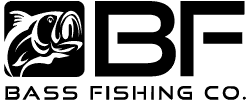Free Shipping over $50+ Order..
Beyond the Headlines Curating Essential World News and Insightful Perspectives for Today’s Reader.
- Beyond the Headlines: Curating Essential World News and Insightful Perspectives for Today’s Reader.
- The Evolving Landscape of Global Reporting
- The Role of Investigative Journalism
- The Impact of Social Media on News Consumption
- Understanding Bias in News Reporting
- The Importance of Source Diversity
- The Future of Journalism: Challenges and Opportunities
- Navigating the Digital Information Age
Beyond the Headlines: Curating Essential World News and Insightful Perspectives for Today’s Reader.
In an era defined by constant connectivity and instant information, staying informed about global events is more crucial than ever. The sheer volume of information available can be overwhelming, making it difficult to discern credible sources and gain a comprehensive understanding of complex issues. This is where curated news and insightful perspectives become invaluable. Accessing well-sourced reporting is essential for informed decision-making and responsible citizenship, and understanding the context behind the headlines is paramount. Today’s reader requires more than just the bare facts; they demand analysis, context, and a critical examination of the forces shaping our world, and that’s what we aim to offer here, a distillation of vital information.
The Evolving Landscape of Global Reporting
The methods of disseminating information have undergone a dramatic transformation in recent decades. Traditionally, news was primarily delivered through established media outlets like newspapers, television, and radio. However, the rise of the internet and social media has disrupted this model, creating a more fragmented and decentralized information ecosystem. This shift has both advantages and disadvantages. While it allows for a wider range of voices and perspectives, it also makes it easier for misinformation and propaganda to spread.
The increasing prevalence of ‘fake news’ and the erosion of trust in traditional media pose significant challenges. Verifying the accuracy of information and identifying credible sources are now essential skills for all citizens. Critical thinking and media literacy are no longer optional, but rather fundamental requirements for navigating the modern information landscape.
| Centralized control of information | Decentralized, user-generated content | Accessibility & Control |
| Professional journalists & editors | Citizen journalists & bloggers | Source Credibility |
| Gatekeepers of news | Direct access to information | Information Filtering |
The Role of Investigative Journalism
In the face of these challenges, investigative journalism plays a vital role in holding power accountable and uncovering hidden truths. Dedicated journalists are willing to spend months, even years, meticulously researching complex stories, interviewing sources, and analyzing documents to bring important issues to light. This often involves considerable risk, as investigative journalists may face threats, intimidation, and legal challenges. Their work, however, is essential for maintaining a healthy democracy and ensuring transparency in government and business.
Recent examples of impactful investigative journalism include exposes on corporate malfeasance, political corruption, and human rights abuses. These investigations have led to policy changes, legal reforms, and increased public awareness. The commitment of these journalists stands as a testament to the enduring importance of a free and independent press.
The Impact of Social Media on News Consumption
Social media platforms have become a primary source of information for many people, particularly younger generations. These platforms offer convenience and immediacy, allowing users to stay up-to-date on current events in real-time. However, they also present several potential drawbacks. Algorithms prioritize engagement over accuracy, meaning that sensational or emotionally charged content is often more likely to go viral than factual reporting.
Furthermore, social media echo chambers can reinforce existing beliefs and biases, making it difficult for people to encounter diverse perspectives. The spread of misinformation and disinformation on social media is a growing concern, and platforms are struggling to effectively address this problem. Increased media literacy and critical evaluation of online sources are essential to mitigate these risks.
Understanding Bias in News Reporting
All news reporting is inevitably shaped by certain biases, whether conscious or unconscious. These biases can stem from a variety of factors, including the political leanings of the journalists, the ownership of the media outlet, and the cultural background of the reporters. It is important to recognize that no news source is entirely objective.
However, responsible journalism strives for fairness and accuracy, presenting multiple perspectives on complex issues and avoiding sensationalism. Readers should be aware of the potential biases of different news sources and seek out information from a wide range of outlets. Cross-referencing information from multiple sources is a crucial step in forming a well-informed opinion.
- Confirmation Bias: Seeking out information that confirms existing beliefs.
- Selection Bias: Choosing to report on certain stories over others.
- Framing Bias: Presenting a story in a way that influences how it is perceived.
- Political Bias: Favoring a particular political ideology.
The Importance of Source Diversity
To achieve a more comprehensive and nuanced understanding of current events, it is essential to diversify your sources of information. Relying on a single news outlet or a limited number of sources can lead to a narrow and skewed perspective. Seek out news from a variety of sources, including those with different political leanings, cultural backgrounds, and geographic locations.
Consider exploring international news organizations, independent media outlets, and non-profit investigative journalism groups. Be wary of echo chambers and actively seek out perspectives that challenge your own beliefs. Critical thinking and a healthy dose of skepticism are essential tools for navigating the complex media landscape.
The Future of Journalism: Challenges and Opportunities
The journalism industry faces numerous challenges in the digital age. Declining revenues, shrinking newsrooms, and the rise of misinformation all pose threats to the future of independent reporting. However, there are also potential opportunities. New technologies, such as artificial intelligence and data journalism, are creating new ways to tell stories and engage audiences.
Innovative funding models, such as philanthropic support, membership programs, and micro-payments, are helping to sustain independent journalism. The commitment of journalists and the continued demand for reliable information suggest that journalism will continue to evolve and adapt, playing a vital role in informing and empowering citizens.
- Support independent journalism through subscriptions or donations.
- Be critical of the information you consume online.
- Diversify your sources of information.
- Engage in constructive dialogue with those who hold different views.
- Promote media literacy and critical thinking skills.
Navigating the Digital Information Age
The digital age has undeniably altered how we receive and interpret information. While it offers unparalleled access to a wealth of knowledge, it also presents unique challenges to responsible news consumption. The constant barrage of headlines, alerts, and social media updates can lead to information overload and a diminished capacity for critical thinking. Taking a proactive approach to curating your information diet is essential.
This means being selective about the sources you trust, actively seeking out diverse perspectives, and verifying the accuracy of information before sharing it with others. Embracing media literacy and developing a healthy skepticism are paramount in navigating the complex landscape of the modern digital world and maintaining a well-informed citizenry.
| Information Overload | Curate your news sources & limit consumption |
| Misinformation & Disinformation | Fact-check & Verify sources |
| Echo Chambers & Filter Bubbles | Seek diverse perspectives |
| Erosion of Trust in Media | Support quality journalism & media literacy |


